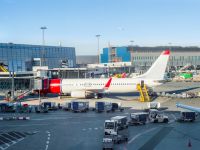The UN aid coordinator for Iraq, Tun Myat, said Tuesday that the availability of spare parts for the oil sector in the sanctions-hit country would be speeded up if weapons inspectors returned.
"The capacity of the Iraqi oil industry to keep up to its production is the most important thing in order to ensure that the population of Iraq receives the daily needs that they require in every sector," Myat told reporters.
"The required approvals had not come as much as we hoped for. We are hoping that it will improve further," Myat said. He noted that many oil industry spares fell under the so-called 1051 list of dual-use items which can have military applications.
"The 1051 list is a sort of vicious circle because within that list you cannot get approval as quickly as you want because of the lack of UNMOVIC inspectors on the ground," the Burmese diplomat said.
Iraq has refused to allow UN arms inspectors back since the departure in December 1998 from Baghdad of the former arms control body, UNSCOM, on the eve of a bombing campaign by the British and US air forces.
The UN Security Council last year set up the UN Monitoring, Verification and Inspection Commission (UNMOVIC), in a resolution that offered to suspend the decade-long sanctions regime if Iraq cooperated fully with the inspectors.
UNMOVIC is charged with verifying that Iraq has no chemical or biological weapons and no long-range missiles.Myat added that Iraq had exported oil worth 4.27 billion dollars since the oil-for-food programme's eighth phase began in June, and was confident that the amount of oil sales "will be between nine and 10 billion dollars" over six months.
The oil-for-food programme, designed to offset the humanitarian consequences of the 10-year-old embargo on Iraq, lets Baghdad sell oil under UN supervision in exchange for food, medical supplies and other necessities.
In mid-August the director of the UN programme, Benon Sevan, called on Iraq and the United Nations to show more flexibility in the application of the programme.
Baghdad has frequently complained of delays in the arrival of supplies, which have to be vetted by the UN sanctions committee, and accuses the United States and Britain of blocking contracts with foreign suppliers.—AFP.
©--Agence France Presse.
© 2000 Mena Report (www.menareport.com)







